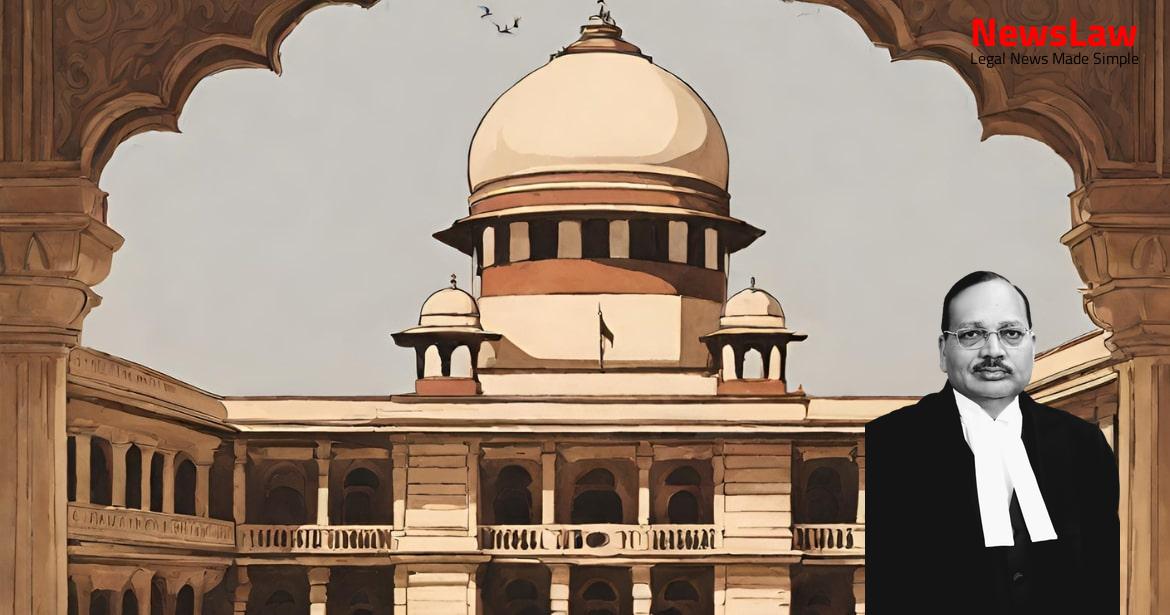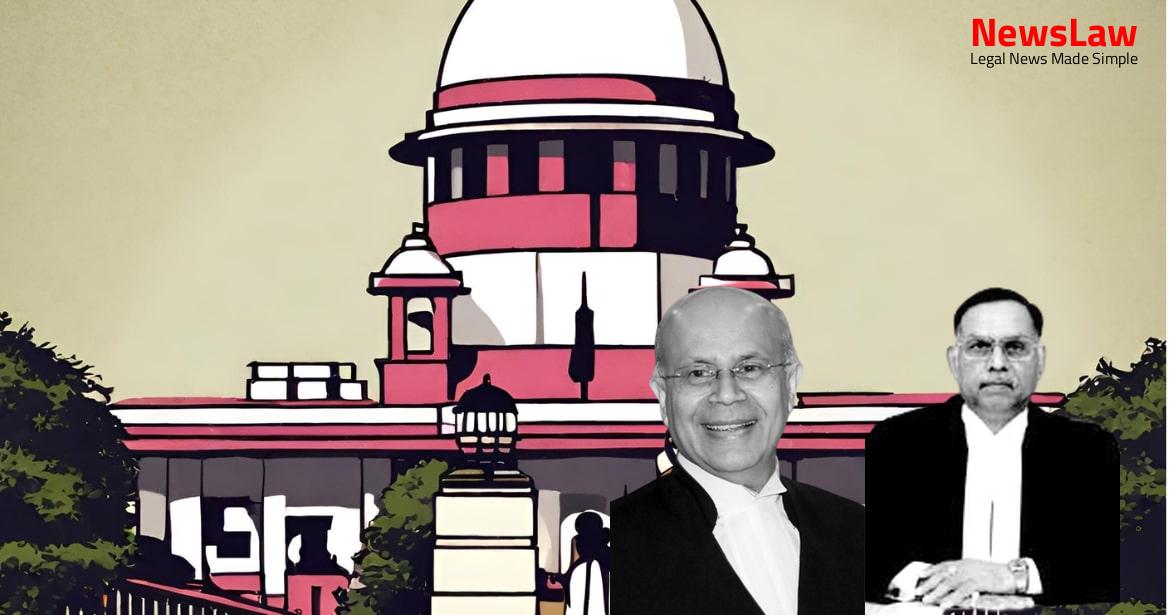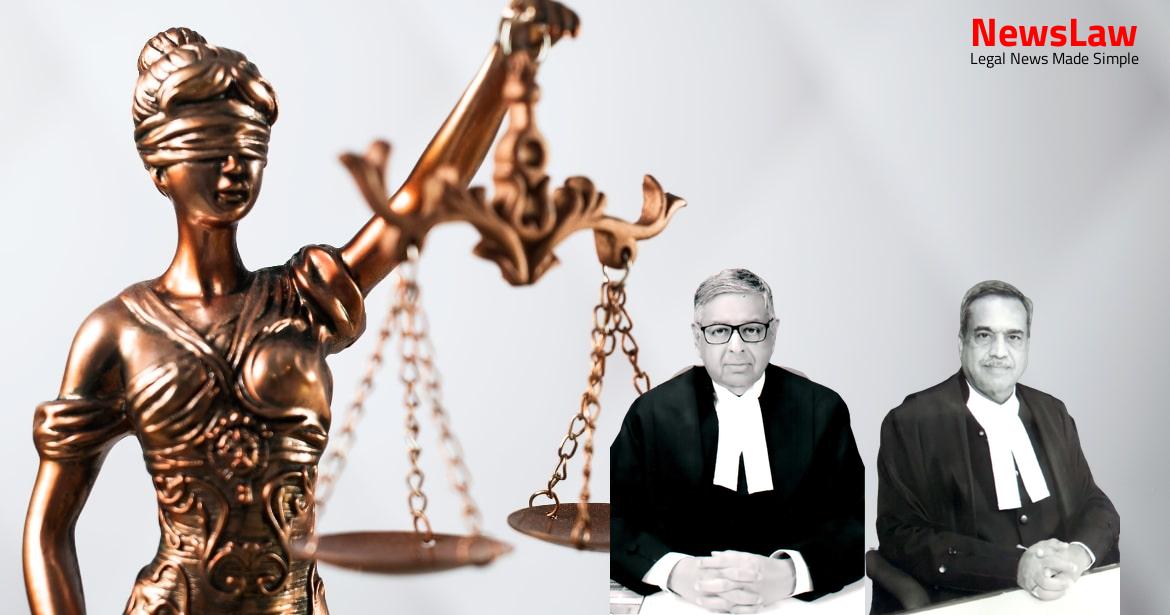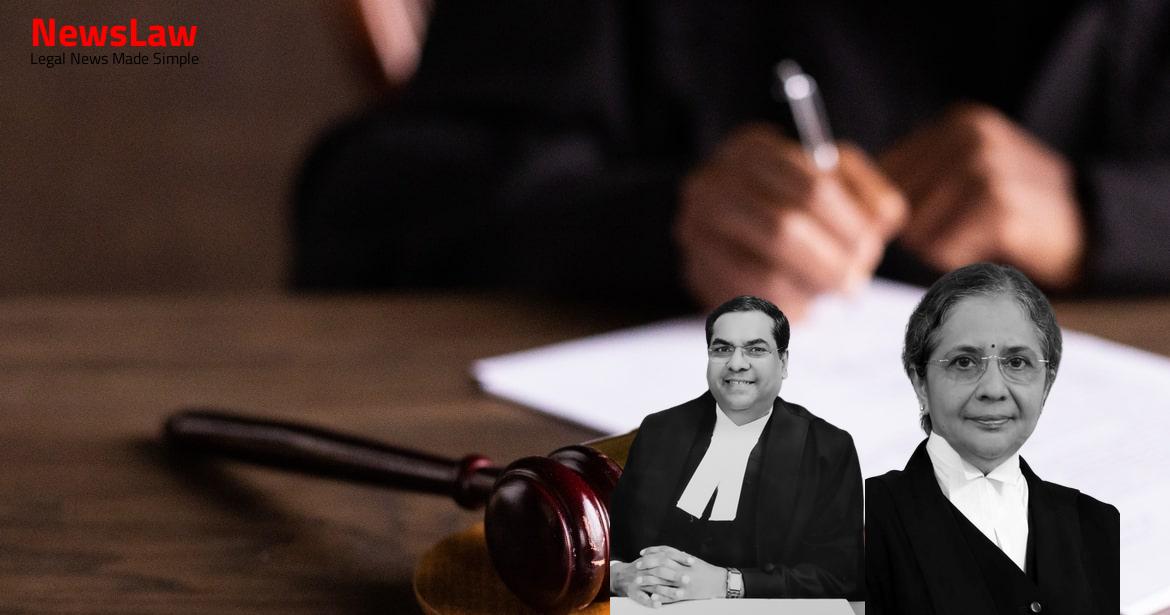In the legal battle between Uttar Pradesh Power Corporation Limited (UPPCL) and Ram Gopal, UPPCL appeals against the Division Bench’s order dated 29.04.2016. Ram Gopal, the respondent, defends the judgment citing similarities with the case of Shyam Behari Lal. The case revolves around the termination of services and the application of legal precedent. Read on for more insights into this ongoing legal dispute.
Facts
- The Respondent, Shyam Behari Lal, was appointed as Meter Cooli/Chaukidar in UPPCL.
- UPPCL conducted selections for certain Class IV positions and declared results on 31.08.1978.
- The selections were cancelled on 03.11.1978 due to irregularities in the process.
- Services of all appointees, including Shyam Behari Lal, were terminated on 07.11.1978.
- Shyam Behari Lal approached the High Court and won his writ petition on 26.10.1989 due to lack of reasons for termination.
- UPPCL’s intra-court appeal was unsuccessful.
- UPPCL then filed Civil Appeal No 7123 of 1993 in the Supreme Court.
- UPPCL’s appeal was dismissed by a Division Bench citing equitable considerations from Shyam Behari Lal’s case for continuation in service.
- The Division Bench emphasized that the respondent’s case was similar to Shyam Behari Lal’s and upheld the Single Judge’s decision based on parity.
- Even though a previous appeal in 1993 mentioned the reason for termination as the cancellation of the selection result, the matter was remitted for further consideration.
- The Division Bench in 1997 acknowledged that the respondent was liable for dismissal but considered his 17 years of service, suggesting the authorities to decide on his continuance in service.
- The High Court requested the authorities to make a suitable decision promptly considering the peculiar circumstances of the case.
Also Read: Environmental Violations Case: TNPCB v. Copper Slag Unit
Issue
- The issue that survives is whether Ram Gopal could seek parity.
- All other questions have been resolved.
Also Read: High Court Upholds Decision on Minimum Eligibility Cut-Off in Judicial Promotions Case
Arguments
- UPPCL vehemently refutes the Respondent’s claim of illegal termination.
- UPPCL appeals against the Division Bench’s order dated 29.04.2016 and the contempt proceedings initiated by the Respondent.
- UPPCL argues that there is no legal correlation or factual similarity between Shyam Behari Lal’s case and Ram Gopal’s case.
- Counsel for the Respondent defends the Division Bench’s judgment, highlighting the recruitment method and termination similarity between Shyam Behari Lal and Ram Gopal.
- The impugned order of the High Court is legally untenable for three reasons.
- The Division Bench erroneously found the termination order to be non-speaking, despite reasons being provided in the order.
- This Court had already ruled in a previous case that the termination order was indeed a speaking one.
Also Read: Protecting LGBTQ+ Rights: Supreme Court’s Landmark Judgment on Habeas Corpus Petitions
Analysis
- The High Court incorrectly applied the precedent set in Shyam Behari Lal’s case to the case of Ram Gopal, as the conditions prevalent in 1957 cannot be reproduced now.
- There was a lack of similarity between Shyam Behari Lal and Ram Gopal, making it unreasonable to extend parity between their cases.
- The High Court’s decision to retain Shyam Behari Lal in service was not a judgment in-rem and lacked the necessary legal ingredients.
- The inordinate delay in filing the writ petition by Ram Gopal, with services being terminated in 1978 and no significant efforts made to seek redressal until 1990, goes against settled legal tenets.
- Equity acts in personam, not in rem, emphasizing the need for timely action in seeking redressal.
- There are implicit time limitations for enforcing writ remedies, and the unique circumstances of Shyam Behari Lal’s case do not warrant seeking or granting parity with Ram Gopal.
- Judgments pronounced by the court with intention to benefit all similarly situated persons must be extended by authorities to all such persons.
- If a judgment is in personam, the benefit extends only to parties before the court, and delays/laches can be grounds for denial of relief.
- Equity considerations differentiate between delay/laches in judgments delivered in-rem and in personam.
- Reliefs in service matters should be extended to all identically situated persons to prevent discrimination.
- Exceptions to this rule include laches, delays, and acquiescence, where fence-sitters may not claim benefits due to delay.
- Employee seems to believe termination order is illegal and he has a right to be reinstated.
- He should have sought legal aid and addressed his grievances promptly.
- None of the assumptions made by the employee are true as per the explanation provided earlier.
- No evidence shows employee was unable to approach court in time due to social or financial reasons.
Decision
- The appeals are allowed
- The impugned order by the learned Single Judge and Division Bench are set aside
- Petitioner’s writ petition is dismissed
- High Court’s interim order in Contempt No. 1271 of 2016 is quashed
- Contempt petition is dismissed
Case Title: CHAIRMAN/MANAGING DIRECTOR, U.P. POWER CORPORATION LTD. Vs. RAM GOPAL (2020 INSC 109)
Case Number: C.A. No.-000852-000852 / 2020



